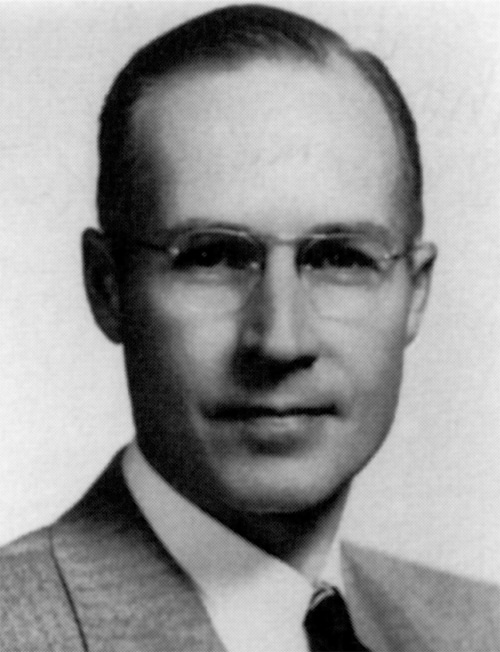 Neurological surgery in the city of Pittsburgh began in 1936 with the arrival of Stuart Niles Rowe, a promising young surgeon trained under the auspices of Charles H. Frazier in Philadelphia. Rowe’s arrival marked the birth of what would eventaully become the Department of Neurological Surgery at the University of Pittsburgh. His move here was prompted by a letter from Dr. L.H. Landon Sr., the chief of general surgery at West Penn Hospital, to Frazier in 1935, emphasizing the need for a formally trained neurosurgeon in Pittsburgh. It is said that Rowe, at the end of his residency, won a coin toss over W. James Gardner for the opportunity to migrate to the Pittsburgh area and set up practice.
Neurological surgery in the city of Pittsburgh began in 1936 with the arrival of Stuart Niles Rowe, a promising young surgeon trained under the auspices of Charles H. Frazier in Philadelphia. Rowe’s arrival marked the birth of what would eventaully become the Department of Neurological Surgery at the University of Pittsburgh. His move here was prompted by a letter from Dr. L.H. Landon Sr., the chief of general surgery at West Penn Hospital, to Frazier in 1935, emphasizing the need for a formally trained neurosurgeon in Pittsburgh. It is said that Rowe, at the end of his residency, won a coin toss over W. James Gardner for the opportunity to migrate to the Pittsburgh area and set up practice.
Rowe, a Michigan native, developed a strong clinical practice based on the loosely affiliated community hospitals in the Pittsburgh area. He focused his research activities at the University of Pittsburgh and wrote several pioneering papers on the neurosurgical treatment of pain, brain abscess, and cerebral trauma. Rowe began the first formal residency program at West Penn Hospital in 1949 and consolidated this program at then Presbyterian University Hospital within the University of Pittsburgh in 1952. Another program was also established at Mercy Hospital in 1949 under the direction of Floyd Bragden, who arrived in Pittsburgh three years after Rowe.
Rowe volunteered for military service in World War II, serving as an Army lieutenant colonel treating casualties at the 160th and 188th U.S. Army Hospitals in southern England from 1942 through 1945. Dr. Rowe was noted as an excellent neurosurgeon with the Army and also became a consultant for area hospitals. Upon his return to Pittsburgh at the end of the war, he resumed control of the neurosurgery service at the university, embarking on a mission to unify the service, which performed operations at many local hospitals. He also began to train residents.
His own training firmly based in academic neurosurgery, Rowe sought to acquire residents with a commitment to research, teaching, and independent thought. The conference schedule included joint conferences with the Mercy Hospital neurosurgical program and a monthly journal club.
Rowe believed that residency training programs should be designed to teach not only exceptional surgical technique, but also the critical clinical decision-making skills needed for properly selecting patients who would benefit from neurosurgical intervention. Rowe emphasized the need for thorough literature review and independent research as a means of broadening clinical knowledge.
(See also Stuart Rowe Society Lectureship and Resident Research Day.)
(See also University of Pittsburgh Department of Neurological Surgery History.)
